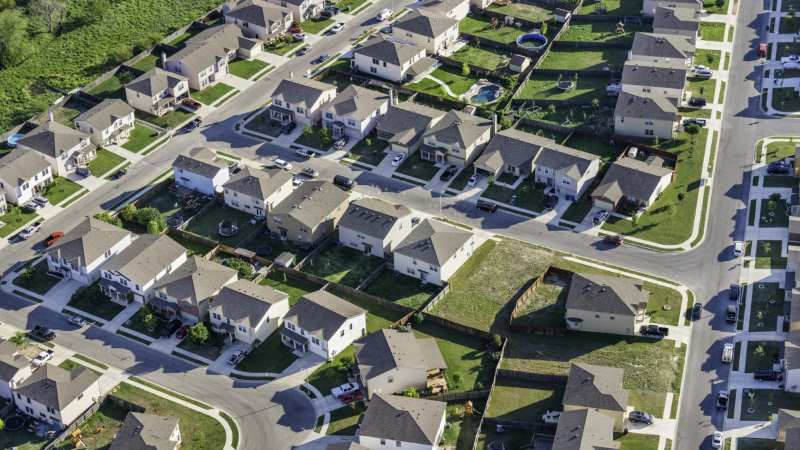Real Estate
Rise in Mortgage Rates in the U.S. Will Affect the Housing Market
Rise in mortgage rates in the U.S. have risen dramatically for the second consecutive week. They are now at their highest levels since early August. This increase has caused a noticeable decline in home purchases across the country. Additionally, refinancing activities have also been negatively impacted by this rise. Buyers are feeling the pressure of these high mortgage rates in today’s market.
30-Year Fixed-Rate Loan
According to data from the Mortgage Bankers Association (MBA), the rate for a 30-year fixed-rate loan rose by 16 basis points, reaching 6.52% for the week ending October 11. In the past two weeks, this rate has climbed 38 basis points, marking the largest increase in a comparable period since February 2023.
Increase in the 15-Year Fixed-Rate Loan
Meanwhile, the rate for a 15-year fixed-rate loan experienced an increase of 23 basis points. This marks the largest rise since May. The new rate now stands at 5.94%. The rise in interest rates reflects ongoing economic changes. Homebuyers may feel the impact of this increase in their mortgage costs.
Influence of U.S. Treasury Yields
Rise in mortgage rates, influenced by U.S. Treasury yields, have been increasing due to reports of solid job growth and persistent inflation. These factors have led traders to lower expectations for aggressive interest rate cuts.
Cautious Approach from the Federal Reserve
Federal Reserve officials who commented on these reports supported a more measured approach to reducing borrowing costs. This follows the significant cut in September. They emphasized the importance of carefully evaluating economic conditions before making changes. Officials want to ensure stability in the financial markets. Their cautious stance reflects ongoing concerns about inflation and economic growth.
Impact on the Housing Market
The increase in mortgage rates is undermining hopes for a swift recovery in the housing market. This market has been constrained by high financing costs. Additionally, elevated selling prices have impacted affordability for potential buyers. As a result, many buyers are hesitant to enter the market. The combination of these factors continues to challenge a housing market rebound.

U.S. Housing Market A Deepening Divide
The U.S. housing market shows a stark divide between homeowners and prospective buyers, highlighting an affordability gap…
Decline in Home Purchases and Refinancings
The MBA’s measure of home purchases fell by 7.2%, marking the largest drop since mid-February. This decline indicates growing market challenges. Meanwhile, the refinancing index plummeted by over 26%. This drop reflects the most significant weekly decline since March 2020. Overall, these trends highlight a turbulent period for the housing market.

MBA Survey and Its Importance
The MBA survey has been conducted weekly since 1990, providing valuable insights into the mortgage market. It gathers responses from various financial institutions. These include mortgage bankers, commercial banks, and savings institutions. This survey covers over 75% of all retail residential mortgage applications in the U.S.
Subscribe for two years to the WSJ and Barrons News on iOS, Android, PC, or Mac. Enjoy unlimited access to news, including Peggy Noonan’s columns, stock picks, and exclusive content.

